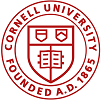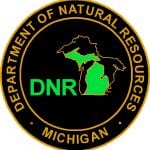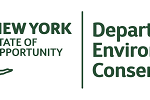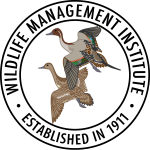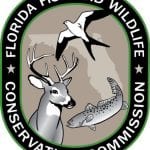Related Readings
Governance Principles for Wildlife Conservation in the 21st Century
Abstract: Wildlife conservation is losing ground in the U.S. for many reasons. The net effect is declines in species and habitat. To address this trend, the wildlife conservation institution (i.e., all customs, practices, organizations and agencies, policies, and laws with respect to wildlife) must adapt to contemporary social–ecological conditions. Adaptation could be supported by clear guidelines reflecting contemporary expectations for wildlife governance. We combine elements of public trust thinking and good governance to produce a broad set of wildlife governance principles. These principles represent guidance for ecologically and socially responsible wildlife conservation. They address persistent, systemic problems and, if adopted, will bring the institution into line with modern expectations for governance of public natural resources. Implementation will require changes in values, objectives, and processes of the wildlife conservation institution. These changes may be difficult, but promise improved wildlife conservation outcomes and increased support for conservation. We introduce challenges and opportunities associated with the principles, and encourage dialogue about them among scientists, practitioners, and other leaders in U.S. wildlife conservation. The principles alone will not change the course of conservation for the better, but may be necessary for such change to occur.
The Role of State Wildlife Professionals Under the Public Trust Doctrine
Abstract: The Public Trust Doctrine (PTD) is considered the cornerstone of the North American Model of Wildlife Conservation. Effective application of the PTD requires a clear understanding of the doctrine and appropriate behavior by trustees, trust managers, and beneficiaries. Most PTD literature refers generically to the role of the government as the people’s trustee, without addressing the differences between the legislative, executive, and judicial branches of government in the United States or recognizing the distinction between elected and appointed officials and career civil servants. Elected and appointed officials, especially in the legislative branch, have policy-level decision-making authority that makes them trustees of the people’s wildlife under the PTD. In contrast, career professionals working for state wildlife agencies (SWA’s) have ministerial duties as trust managers. The differences between the roles of trustees and trust managers are important. By focusing on their role as trust managers, while supporting and respecting the role of elected and appointed officials as trustees, SWA professionals can more effectively advance application of the PTD.
Other Readings/Resources
If online version of the abstract or article are available, they are linked here.
Decker, D.J., A. B. Forstchen, A.M. LeClaire-Mitchell, C.A. Jacobson. 2012. Seeking Common Ground for Collaborative Conservation: Overcoming Barriers and Building Bridges to a Wildlife Conservation Institution for “All Wildlife for All People”. Transactions of the 76th North American Wildlife and Natural Resources Conference. Printing/distribution pending.
Decker, D.J., A.B. Forstchen, C.A. Jacobson, C.A. Smith, J.F. Organ, and D. Hare. 2013. What does it mean to manage wildlife as if public trust really matters. In Transactions of the 78th North American Wildlife and Natural Resources Conference (Vol. 78, pp. 18-25).
Forstchen, A. B., and D. J. Decker. 2014. “On the Front Lines of Making Conservation
Relevant and Valued: A Florida Case Study.” Transactions of the 79th North American
Wildlife and Natural Resources Conference. Printing pending.
Forstchen, A.B. and N. Wiley. 2015. Converting Consumers to Customers: Why We Should
Consider a Different Approach. Transactions of the 80th North American Wildlife and Natural
Resources Conference. Printing pending.
Forstchen, A.B., Decker, D.J., and Hare, D. In review. The Genesis of Wildlife Governance Principles: Need and Response. Transactions of the North American and Wildlife Resources Conference (2016).
Decker, D.J., Organ, J.F., Forstchen, A.B., Jacobson, C.A., Siemer, W.F., Smith, C.A., Lederle, P.E., and Schiavone, M.V. In review. Wildlife Governance in the 21st Century – Will Sustainable-use Endure? Wildlife Society Bulletin.
Hare, D., Decker, D.J., Smith, C.A., Forstchen, A.B., and Jacobson, C.A., In review. Applying Public Trust Thinking to Wildlife Governance in the United States: Challenges and Solutions. Human Dimensions of Wildlife.

